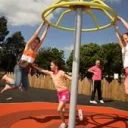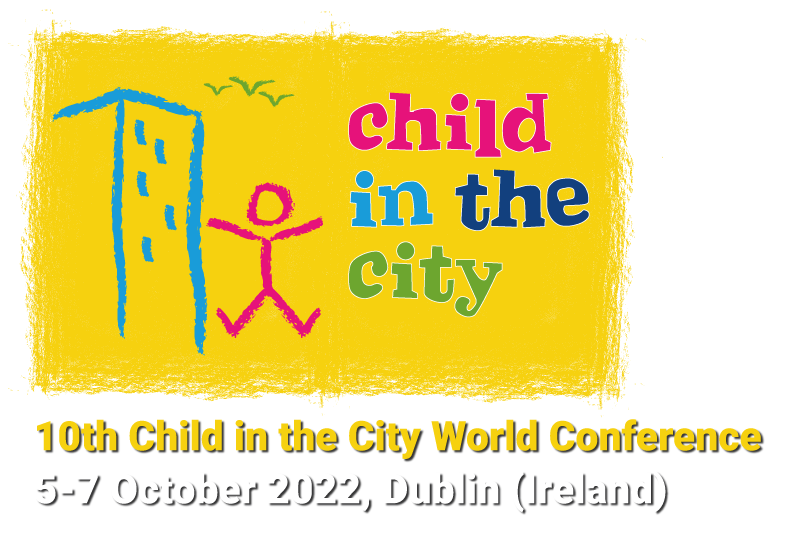Parallel session 3-5: Re-connecting children to society during and after COVID-19
Wednesday, 5th October 16.00 – 17.30, Main Plenary Room in Printworks Conference Centre at Dublin Castle
 Online schooling in Australia amid the COVID-19 pandemic: Perspectives from refugee-background students
Online schooling in Australia amid the COVID-19 pandemic: Perspectives from refugee-background students
Nina Maadad, University of Adelaide, Australia
The extent of the spread of the coronavirus (COVID-19) pandemic and its consequences, particularly on school closures have severely impacted all students around the world, most especially, immigrant and refugee students. This presentation will examine how refugee-background students in Australia perceive schooling amid the COVID-19 pandemic. The aim is to identify what worked and did not work in online schooling during lockdowns. Relevant information is drawn from the 5-year study of children from refugee background conducted by researchers from Spencer Foundation. Focus is given to perspectives of high school students between the ages of 13 and 17 on the challenges and opportunities of online learning. The insights drawn from the refugee-background students will inform current teaching and learning practice, particularly how refugee children can be supported to ensure engagement and positive learning outcomes.,

Get into Summer – Scotland’s response to COVID-19, supporting recovery and wellbeing
Cherie Morgan, Play Scotland, United Kingdom
At a time of major change and disruption, it is more important than ever to maintain and strengthen a focus on all children’s right to play. The plans to incorporate the UNCRC in Scots law are seen as an essential and crucial underpinning to recovery from the pandemic and to realising children’s rights for the future.Children want a return to play, more play and better play. This was children and young people’s overwhelming response to a consultation on play undertaken by Play Scotland in early 2021. The survey showed that COVID-19 had had an enormous impact on children and young people’s lives. After the challenges of the last year, children wanted a return to the play they enjoy. They wanted fun, friends, and family and more play at school, at clubs and outdoors.
The impact of the Covid-19 pandemic on play compounded an already worrying problem in childhood mental health problems. Children need play to thrive and make sense of their world and to support their mental and physical health and wellbeing.
The children and young people’s consultation 2021 “Play in a COVID-19 Context” was one of the levers that brought about the Scottish Government’s Get into Summer Campaign, a £20 million investment in play, arts and leisure in 2021. Play Scotland was one of the strategic partners who took forward a range of projects which supported children and young people to re-connect with their peers, their families and their communities.
Play Scotland led on 6 action research projects which were designed to engage with children and young people over the summer of 2021. The evidence, evaluation and innovative pilot projects demonstrated how particular projects have the capacity to improve relationships and wellbeing for children and young people, enabling their recovery after COVID-19.

Spaces, bridges, exchanges. For a new ethics of the educating city
Elena Pagliarino
Stereotypical representations of Italy describe the Bel Paese as a place where children are precious, pampered and spoiled protagonists of the society. Actually, the demographic evolution and that of the school system in last decades have brought children and their families to the margins of the interests of Italian politics. The pandemic has highlighted how much the rights, the needs and the desires of the Italian children have long been neglected and how closely they are related to the public specs of the city. The individual and collective bodies of children have always found in common spaces opportunities for growth, health and well-being. The ever-increasing gap between rural and urban, and the distance between nature and culture, now threatens to draw indelible boundaries between indoor and outdoor. It thus becomes essential to reacquaint ourselves with the perception of the landscape near us in order to reactivate new perceptual channels of places that have been neglected and/or at best deputed to a now rarefied sociality, relegated to aseptic or virtual realms even for childhoodThe aim of this presentation is to reflect on the possibilities and the need to rethink schools and cities as spaces capable of responding to the health crisis without ignoring children. The pandemic, despite its tragic nature, offers opportunities for reflection and action on the
possibilities of urban regeneration and educational change within a broader and transformative cultural change that guarantees to children the right to citizenship and ecological transition. In this presentation these possibilities are explored by looking at historical experiences and consolidated methodologies conducted before Covid-19 and innovative strategies carried out during the pandemic, developed by citizens and associations. These experiences focus on the concept of the schools outside the school (outdoor schoolings) and on the educational potential of public spaces, primarily playgrounds. The two types of experience find a synthesis in the school-city, a city that rethinks its structure and function in an holistic way, including security, educational, and ecological objectives.
The case studies have been chosen subjectively with the aim of highlighting how each crisis brings with its opportunities for change that may, or not, be seized as Morin (2020) argues. The cases, briefly described, are discussed to encourage reflection, comparison, and dialogue and, ultimately, prefigure new scenarios for socio-environmental transformation.
 Sharing children’s perspectives during lockdowns in Aotearoa New Zealand- opportunities for child-friendly sustainable neighbourhood design
Sharing children’s perspectives during lockdowns in Aotearoa New Zealand- opportunities for child-friendly sustainable neighbourhood design
Niamh Donnellan,
University of Auckland,
New Zealand
